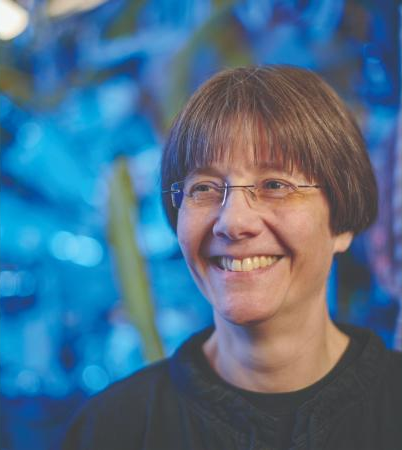The Science of Rare Isotopes
From the Cosmological Origin of the Elements to Making Rare Isotopes for Use on Earth
Alexandra Gade
Professor of Physics
Scientific Director, Facility for Rare Isotope Beams
Michigan State University
Sponsored by a PSW Science member who wishes to remain anonymous
About the Lecture

There are approximately 300 stable atomic nuclei and 3,000 known unstable (rare) isotopes that are radioactive and that eventually decay into their stable cousins. Estimates are that over 7,000 different isotopes can be forged that are bound by the nuclear force. It is now recognized that the properties of many yet undiscovered rare isotopes hold the key to understanding how to develop a comprehensive and predictive model of atomic nuclei, to accurately model a variety of astrophysical environments, and to understand the origin and history of elements in the Universe. Some of these isotopes also offer the possibility to study nature’s underlying fundamental symmetries and to explore new applications of rare isotopes. This presentation will give a glimpse of the opportunities that arise at the Facility for Rare Isotope Beams (FRIB) that started operations at Michigan State University in 2022.
Selected Reading & Media References
https://www.energy.gov/science/np/articles/facility-rare-isotope-beams-after-one-year-operation
https://www.energy.gov/science/np/articles/facility-rare-isotope-beams-observes-five-never-seen-isotopes
https://frib.msu.edu/science
https://frib.msu.edu/science/structure
https://frib.msu.edu/science/astrophysics
https://pubs.aip.org/physicstoday/article-pdf/61/11/40/8318835/40_1_online.pdf
About the Speaker

Alexandra Gade is Professor of Physics at Michigan State University, the National Superconducting Cyclotron Laboratory, and the Facility for Rare Isotope Beams, (FRIB) where she currently is Scientific Director.
Alexandra’s research is focused on the structure of short-lived rare isotopes using γ-ray spectroscopy and nuclear reactions. As Director of the FRIB she ensures that the scientific promise of the facility is achieved by an active user community.
She has served on the Nuclear Science Advisory Committee to the Department of Energy and the National Science Foundation, and on the writing group for the 2023 US Nuclear Science Long Range Plan. She has also played a major role in assembling whitepapers on rare isotope research and instrumentation for the FRIB era.
Alexandra is an author on more than 300 peer reviewed publications. She is a Fellow of the American Physical Society and the American Association for the Advancement of Science. Among other honors and awards she is the recipient of the Szymański Prize, a DOE Outstanding Junior Investigator award, and a Sloan Research Fellowship. Importantly, she has mentored many graduate students and postdoctoral research associates who moved on to productive careers in academia, national laboratories, and industry.
Alexandra earned her undergraduate and graduate degrees at the University of Koelm in Germany: Vordiplom in Physics, Diploma Thesis (on Experimental Nuclear Physics), and Dr. rer. nat (PhD equivalent in Physics).
CV: https://people.frib.msu.edu/~gade/cv.html
Webpage(s):
1. https://frib.msu.edu/about/organization/staff/gade-profile
2. https://people.frib.msu.edu/~gade/
3. https://frib.msu.edu/for-students/faculty/gade-profile
LinkedIn Profile
https://www.linkedin.com/in/alexandra-gade-65900424